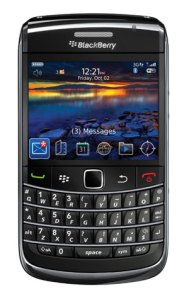
The prolonged dance between BlackBerry-maker Research in Motion and the government of India appears to be entering another phase—and India seems to be getting everything it wants. An Indian interior ministry spokesperson says RIM has set up an “interim arrangement” for lawful interception of BlackBerry Messenger services, and that a permanent solution should be in place by the end of January 2011. The Indian government and RIM are apparently still trying to find a way to satisfy India’s demands of access to encrypted corporate email services. The ministry spokesperson’s comments were reported in the Economic Times; RIM itself has consistently refused to comment on enabling governments to tap into its communications services.
Earlier this month, RIM won yet another reprieve on the shutdown of BlackBerry services in the country, as it continues to work with the Indian government to satisfy their concerns encrypted BlackBerry services could be used by militants and terrorists to plan attacks. Free speech and civil liberties advocates have pointed out the potential for abuse both by governments (who could use the same message interception capabilities for political ends) and by criminals (if they should find a way to access formerly-private communications).
The ministry did not mention any progress on gaining access to encrypted BlackBerry email services, but industry reports indicate discussions are ongoing. RIM has repeatedly asserted it has no backdoor to communications that are signed via user-generated encryption keys. Industry speculation has centered on the Indian government requiring organizations and businesses using BlackBerry enterprise email services hand over their organizational encryption keys to the government, thereby providing access to all their users’ communications.
India’s insistence on access to encrypted BlackBerry communications is likely just a first step in the country’s plans to have access to protected data services. India has already indicated it plans to require access from the likes of Skype and Google Talk, and Nokia has already indicated it will provide the Indian government access to communications over its mobile services.


